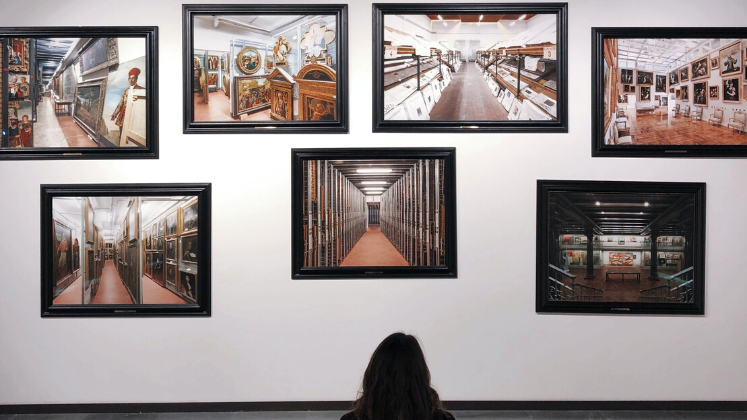Reflecting on seven years of UK in a Changing Europe, Anand Menon and Jill Rutter discuss how the project has brought social science insights into the mainstream of a polarised public debate. Highlighting how this mode of engagement falls outside of orthodox ‘REF Impact’ and lessons learned, they suggest there are further opportunities to deploy similar models to other socio-political challenges.
UK in a Changing Europe (UKICE) was established by the ESRC in 2015, following the success of the Future of Scotland initiative in informing the Scottish independence referendum in 2014. Its short-term mission was to bring social science research and expertise to bear in the debates that would inevitably be generated as the Conservative election victory in the 2015 election pointed to an in-out referendum on UK membership of the European Union.
The model for UKICE was to appoint a Director, Professor Anand Menon, fund a network of senior fellows across a range of social science disciplines, both to support research and engage with non-academics, and finally to create a central hub – with a dedicated communications team – to support such engagement. UKICE was always about impact and engagement first, ensuring existing knowledge and expertise was easily accessible, with original research a secondary output. The hub was based at Kings College London, but the senior fellows remained in their home institutions. The central challenge the model was designed to meet was the problem that people outside academia – whether in the media, government or parliament, overseas embassies and the general public – have in reaching experts beyond the “usual suspects”, who understand how to communicate in terms that make sense to them.
UKICE work can be divided into three broad phases. In the run-up to the referendum, it was largely about public information – injecting facts and evidence and understanding of the EU into a debate which became very heated and polarising. UKICE studiously took no view on the central question of whether the UK should stay in the EU or not. There were some behind the scenes briefings for the campaigns, but the main activity was engaging in public debates around the country, working with a wide range of media outlets including breakfast TV, Five Live, local radio and the tabloids, as well as collaborating with platforms such as Mumsnet.
The hub is a critical piece of capacity – outsiders know where to go to be connected to the expert they need.
The reputation for impartial evidence-based analysis – and the increasing familiarity with UKICE as a place that could connect people rapidly with the expert they needed – stood the initiative in good stead for the fraught period that followed the Brexit referendum – but the mode of engagement changed. While there was still a lot of public media work – of increasing profile with both Anand Menon and Professor Catherine Barnard popping up on Question Time – there was also a big increase in demand for discussions and briefings, often private, with groups of MPs, officials, businesses, business organisations and third sector organisations trying to make sense of what Brexit could mean for them, not to mention London based embassies trying to make sense of the UK debates for their capitals. There was an increasing demand as well for UKICE experts to appear in front of Parliamentary committees. The ESRC funded media training was critical in ensuring Fellows had the confidence to perform to a consistently high standard.
We complemented that activity with a range of reports – some on specific subjects, others reacting to developments such as the implications of no deal, some based on new research, others bringing together and showcasing a wide range of expert contributors around a theme. We also organised public events and at conferences deliberately mixed academics with policy makers and journalists to raise profile and increase our reach and impact.
Our communications team also developed a wide range of social media to promote our work. We tweet extensively from @UKandEU. We produce podcasts, moved our events online during lockdown and even used TikTok to explain the UK’s new relationship with the EU.
Demand from government and Parliament show they value it highly. But this is not the sort of activity that is incentivised by the REF.
UKICE has now just been funded for a third, post-Brexit phase. That will mean adapting our existing model to contribute both to debates about UK policy post-Brexit and in particular how it responds to some of the divisions Brexit exposed, as well as making sense of Britain’s new role in the world – both its relationship with the EU (still changing!) and its ambitions to be “Global Britain”.
So what lessons from UKICE, now in its seventh year?
First, it has created a team of academics willing, able and available to engage publicly. Availability is key – most of the requests that come into the UKICE hub need a rapid reaction. The hub is a critical piece of capacity – outsiders know where to go to be connected to the expert they need.
Second, we have created a virtuous cycle of exposure. Publishing new content, or commentary, or explainers, generates demands for follow up meetings or media. In turn, that allowed us to build our profile, while maintaining our reputation for dispassionate factual analysis. A key element in this is academics being able to tailor communication – whether written or oral – to the needs of their audience, without compromising their academic integrity.
Third, the UKICE experience has shown that many academics are not as aware as they should be of the implicit biases in their work. We regularly have to ask for revisions to blogs or contributions which purport to be fact-based analyses, but which clearly display the author’s political preferences.
Finally, our experience shows that impact takes time and effort. ESRC funding and support has been critical. But much of our work has involved taking the cumulative knowledge and expertise of academia and creating channels for it to inform UK public debate. We believe it is hugely valuable work. Demand from government and Parliament show they value it highly. But this is not the sort of activity that is incentivised by the REF. There is a policy gap here which any government that wants to make best use of academic and especially social science talent should address.
This post draws on the authors’ recent book chapter, From broadcast to engagement: moving beyond traditional mechanisms, published in How to Engage Policy Makers with Your Research, Edited by Tim Vorley, Syahirah Abdul Rahman, Lauren Tuckerman, and Phil Wallace.
The content generated on this blog is for information purposes only. This Article gives the views and opinions of the authors and does not reflect the views and opinions of the Impact of Social Science blog (the blog), nor of the London School of Economics and Political Science. Please review our comments policy if you have any concerns on posting a comment below.
Image Credit: Alexas_Fotos via Pixabay.









Excellent example of the tremendously important role academics can play in polarised political debates! Thanks for posting this brief review based on the @UKandEU experience.